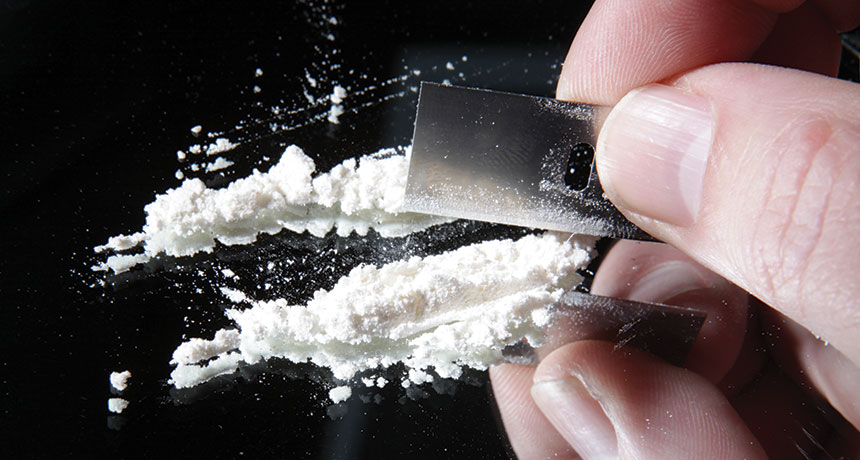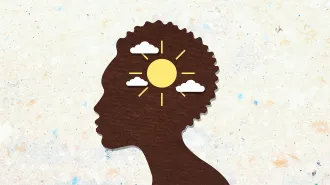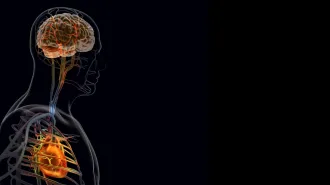Cocaine addicts can’t kick other habits either
Hard for users to adjust behavior despite negative consequences, study finds

HOOKED ON HABITS Cocaine addicts aren’t just hooked on the drug; they’re also more likely to hang on to other unrelated habits, a new study suggests.
tracy lorna/istockphoto
- More than 2 years ago
People hooked on cocaine are more likely to stick to other habits, too. They’re also less sensitive to negative feedback that tends to push nonaddicts away from harmful habitual behaviors, new research published in the June 17 Science suggests.
The findings might help explain why cocaine addicts will do nearly anything to keep using the drug, despite awareness of its negative consequences. Instead, treatments that encourage new, healthier habits in place of drug use might click better.
Similar results have been demonstrated with mice and rats, but the effect hadn’t been well-established in humans.
There’s no pharmacological treatment approved by the U.S. Food and Drug Administration that targets cocaine addiction as there is for opioid addiction. So the best treatment currently focuses on changing patients’ behavior — and it’s not easy.
“It’s such a devastating situation for families,” says Karen Ersche, a psychologist at the University of Cambridge who led the study. Drug users “know they’ll lose their job. They’ll tell you they want to change, but still they carry on using the drug. It seems incomprehensible.”
Habits can be helpful because they free up brainpower for other things. A new driver has to think through every push of the pedal and flick of the turn signal, while an experienced one can perform these actions almost effortlessly, allowing them to also carry on a conversation. But people can also snap out of that automation when necessary, slamming on the brakes when a deer darts across the road. It’s harder for someone addicted to cocaine to get off autopilot.
Ersche and her colleagues showed sets of animal pictures to 125 people (some cocaine-dependent, others who had never chronically used drugs or alcohol). In one set of tests the participants learned through trial and error that certain responses to specific pictures would earn them points or not. In another, responding correctly let them escape an unpleasant electrical shock.
When animal pictures that once scored lots of points no longer did, the participants who weren’t using drugs adjusted to the change and were less likely to choose those pictures. Cocaine-addicted participants couldn’t adjust their behavior in the same way in light of the new information. They were also less successful at avoiding electrical shocks.
“That knowledge of something bad happening to them doesn’t really sink in,” Ersche says.
These results mirror those of another recent study showing that people with a history of drug or alcohol addiction (even though they were no longer using the substances) formed habits more easily and had a harder time changing them, says Charlotte Boettiger, a psychologist at the University of North Carolina at Chapel Hill. Boettiger led that study, published in the July Journal of Cognitive Neuroscience.
Both teams found that stimulants like cocaine seemed to influence habit formation more than other types of drugs did.
Successful behavioral treatment for cocaine addiction might take advantage of addicts’ habit-keeping tendencies, Ersche suggests.
“In some senses, the treatment community already capitalizes on this,” says Boettiger, pointing to programs that help patients replace their drug-use habits with healthier ones, like taking a walk after dinner instead of shooting up. There’s growing evidence that these strategies might work, though breaking the cycle of addiction is still tough.
Scientists don’t know whether people who form and keep habits more easily are more likely to become addicted to drugs in the first place, or whether drug addiction makes the brain more susceptible to habitual behavior. Boettiger suspects both might contribute —and that understanding the behavior and its neurological basis might someday help scientists develop medications to supplement behavior-based addiction treatments.







